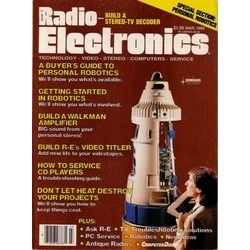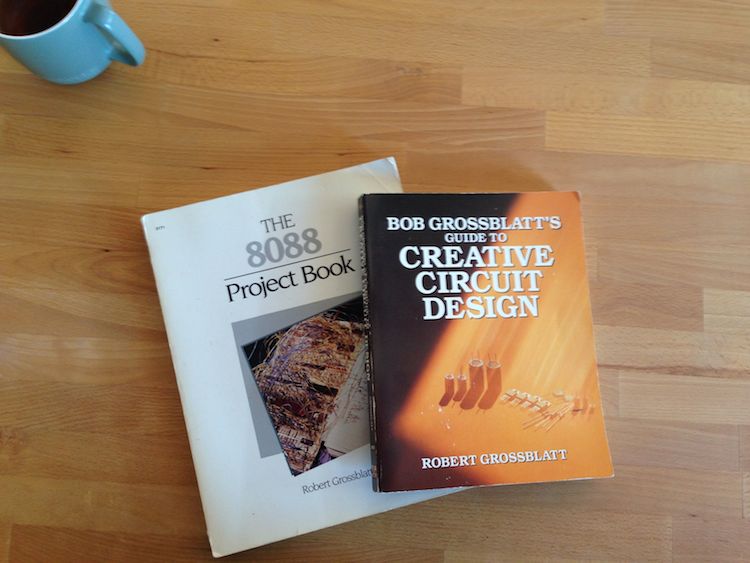Whither Bob Grossblatt?
So there I am, 11 years old, lying in a hospital bed, freshly missing an appendix that I hadn’t known existed a week before.
Bored. So bored.
My aunt walks in with a magazine she thinks I might like.

I read Radio-Electronics for years. From grade school, through junior high, and into high school. I kept every copy. I would read and re-read. Trying to understand what I didn’t already. Dreaming about having the tools and parts to build the kinds of projects that I would read about. Very often I’d dream up my own projects, and sometimes cobble them together with the parts I could lay my hands on. Electronics absorbed me. I spent most of my teenage years split between reading science fiction and scheming to build circuits that reached toward making that fiction into fact.
Fast forward to my late teens. College wasn’t in the cards for me right away, despite all of the college prep. Somehow I’d managed to move out on my own into a little apartment I could barely afford on my electronics-assembler wages. It was a miserable existence in many ways, but my one great pleasure was Tower Books, my local bookstore. I would spend hours browsing their cramped stacks. I stayed mostly in the areas I understood – physics and electronics. (There was this baffling section on software, but it wasn’t accessible. Every book seemed to be about things that were totally made up!)
Electronics books always got me excited. With a few exceptions (another build-your-own-robot book?), I was stoked whenever something new would come in. I would linger in the bookstore for as long as I would have spent at the movies, but usually spent less. I often left empty handed, or maybe with a copy of Circuit Cellar magazine. In any case, a cheap evening of entertainment.
One day I saw a book by a familiar author I remembered from Radio-Electronics, Robert Grossblatt. I can’t remember which of his two books I bought first. It doesn’t really matter. There’s a common theme between them. These books are ostensibly about engineering electronics, but are applicable to engineering in general. Because of that, if you can read between the lines, they are some of the best foundation-building books on software development you’ll read.

I’m not sure I can properly articulate the value of these books to me. At that time especially I was broke and couldn’t afford to build the projects described. I read them anyway, preparing my mind for what I didn’t know was coming next: A career as a software developer. Those books gave me a perspective that helped me through struggles and to value and appreciate the field I was entering.
So whatever happened to Bob? I don’t know. I’ve googled a bit and haven’t found anything.
Wherever you are now Bob, thanks.
I’ll close with just a few of Bob’s “Laws of Life & Design”.







These excerpts are from “Bob Grossblatt’s Guide To Creative Circuit Design” and “The 8088 Project Book”, both © Robert Grossblatt, published by TAB Books. (A lot of TAB books were crap but they did publish a few gems and these were two of them.)
